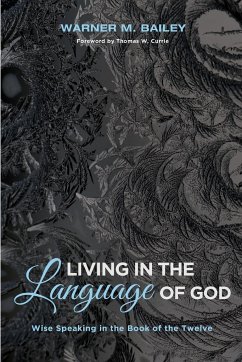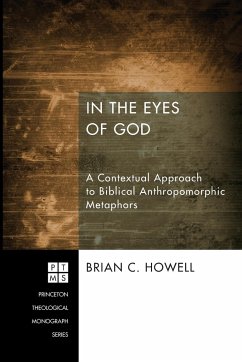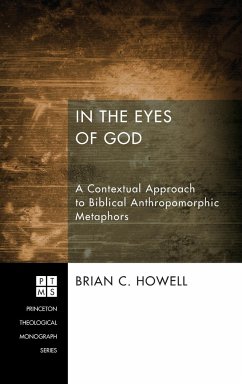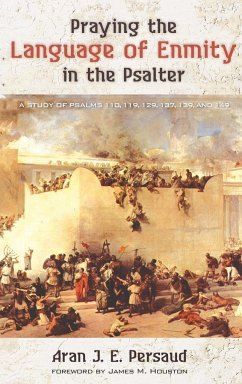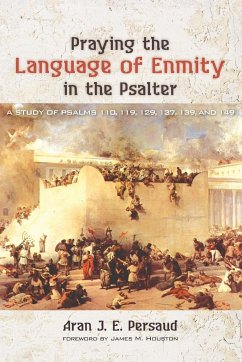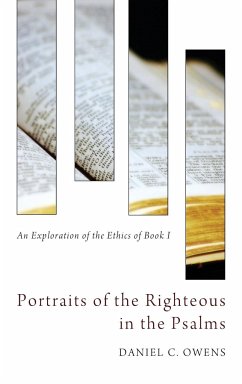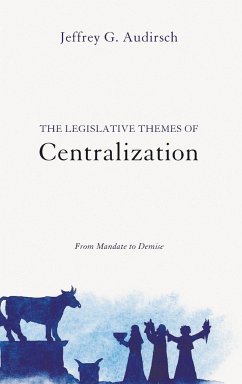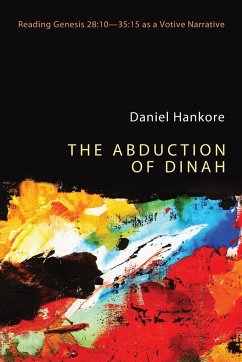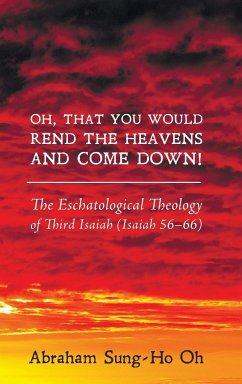
Living in the Language of God
Versandkostenfrei!
Versandfertig in 1-2 Wochen
31,99 €
inkl. MwSt.
Weitere Ausgaben:

PAYBACK Punkte
16 °P sammeln!
Twenty-first century Christians live in diaspora, merely one voice among many, without enjoying their once-privileged place in society. This is particularly the case for those who struggle to be a church that mirrors the capaciousness of God's grace. We are assaulted by the venting of pent-up furies, which are stoked by profound anxieties over the loss of a cherished worldview and fear about an unacceptable but unstoppable future. Frequently, we struggle to speak an authentic word of God amidst the cross-talk of many voices. This book--a canonical study of Hosea through Malachi, called collect...
Twenty-first century Christians live in diaspora, merely one voice among many, without enjoying their once-privileged place in society. This is particularly the case for those who struggle to be a church that mirrors the capaciousness of God's grace. We are assaulted by the venting of pent-up furies, which are stoked by profound anxieties over the loss of a cherished worldview and fear about an unacceptable but unstoppable future. Frequently, we struggle to speak an authentic word of God amidst the cross-talk of many voices. This book--a canonical study of Hosea through Malachi, called collectively The Book of the Twelve--describes a biblical model of faithful speaking under similar circumstances. It guides reaction to this loss toward intense engagement with Scripture and theology in order to sense again the meaning of speaking what is at the heart of faith, God's unalterable commitment to continuing faithfulness with us. ""An up-to-date and engaging presentation of the Twelve from the perspective of recent scholarship. The author unlocks an angle of vision that feeds directly into theological and pastoral application, and he does so with energy and clarity. This balance is what makes for such a strong contribution to theological exegesis for our day. Highly recommended."" --Christopher R. Seitz, Senior Research Professor of Biblical Interpretation, Wycliffe College, University of Toronto ""Bailey has composed a short but engaging apology for the significance of The Book of the Twelve for a church today that finds itself alienated and in crisis. Drawing on recent biblical scholarship that views the Twelve as an intended unity, Bailey shows how 'embedded speech' in this corpus is the key to unlocking its theological relevance. Could serve as a great supplementary seminary textbook for a course on the (Minor) Prophets, Old Testament Theology, or Hermeneutics."" --Mark Sneed, Professor of Bible, Lubbock Christian University ""More than a piece of heady biblical scholarship on the prophets, Bailey offers a genuine contribution to the theological-ethical interpretation of Scripture that pastors and scholars concerned with the lives of communities of faith will do well to attend to. Out of his study of the Twelve, Bailey articulates a kind of piety for contemporary congregations to adopt in the midst of a world that has seen the Christian church's privileged cultural position disappear."" --Timothy J. Sandoval, Brite Divinity School Warner M. Bailey is Director of Presbyterian Studies at Brite Divinity School, Texas Christian University. He is the author of The Self-Shaming God Who Reconciles (Pickwick, 2013).




